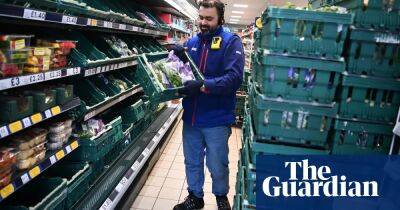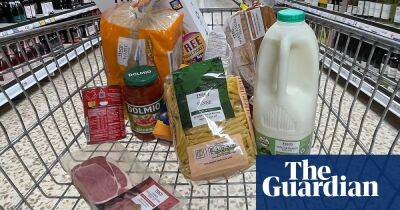Revealed: record number of households in UK depending on food banks
More people are depending on food banks than ever before in Britain, new figures show, as “ever-increasing” numbers of households – including pensioners, NHS staff and teachers – seek help amid the cost of living crisis.
New research by the Independent Food Aid Network (Ifan), shared with the Observer, found that almost 90% of food banks surveyed reported increased demand in December 2022 and January 2023 compared with a year earlier. Half of the 85 organisations running 154 food banks that responded said if demand rose further they would either have to cut support or turn people away.
The Trussell Trust, which with more than 1,300 food banks is the UK’s biggest provider, expects this winter will have been its busiest ever, warning in November that food banks were at “breaking point”. Between April and September alone it distributed 1.3m emergency food parcels – a third more than the same period in 2021 and over 50% more than pre-pandemic.
Figures published last week by the Office for National Statistics showed how despite inflationary pressures easing, the cost of living crisis is still raging. Food inflation is at 16.7% and the cost of gas is nearly 130% higher than a year ago. The Office for Budget Responsibility forecast in November that households’ disposable income would fall by 4.3% in 2022-23, the largest drop since comparable records began in 1956.
A slump in wages in real terms and soaring inflation have triggered the most widespread strikes in the public sector in decades. A ballot of more than 45,000 junior doctors closes on Monday, with results expected to be announced later in the day.
Food banks are struggling to meet record demand from people who are in work – including NHS staff and teachers – the Ifan
Read more on theguardian.com











